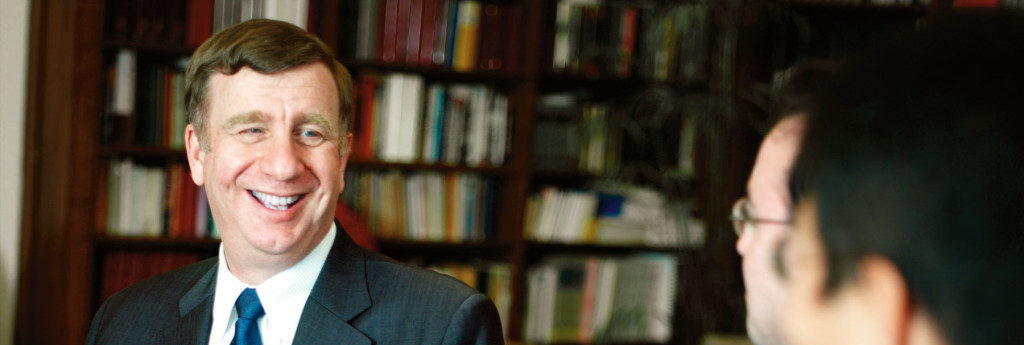Zhang Jinfei
J.D. ’05, Harvard Law School
At a time when nations and individuals are divided by race, geopolitics, self-righteousness and inflated egos, it becomes more challenging, but the same time even more vital, to stay sober about the meaning of a person’s life. The highest of all glories of a person’s life, as nicely stated by an old Chinese teaching, is to establish virtue; then to establish achievements; and then to establish words. Professor William Alford is such a person—one with words, achievements and virtue.
Professor Alford is known for his scholarship on Chinese law and legal history. About twenty years ago, when I met Prof. Alford the first time in his office in Pound Hall, I was looking for guidance on my dissertation on Chinese legal history and comparative law. To steal a book is an elegant offense; to be inspired by another’s words is the beginning of learning. Prof. Alford’s scholarship has inspired many law students and ignited their interest in international law and affairs.
The true meaning of international law is to understand different legal systems and the culture and philosophy underneath those systems, to find practical solutions for economic and trade disputes across different jurisdictions, and to form common ground and provide normative guidelines as well as methods and mechanisms to address core questions that we all face, such as war, peace and human rights. Prof. Alford has been working tirelessly toward such goals over the past 50 years. He founded the first academic program in American law in China and the first national exchange program to bring Chinese students to the U.S. for legal education. Throughout his tenure at Harvard Law School, he has created an effective channel through which governments, multilateral organizations, foundations, civic groups, law firms and businesses from the U.S., China and many other countries can effectively communicate, and his work embodies an awareness of and engagement with the world.
More importantly, Professor Alford does not just care about the world, he cares about the “least” among us. This compassion and empathy are the central theme of his teaching on human rights and disability law. According to the World Health Organization, about ten to eleven percent of the world’s population has a disability. Disabled people in most parts of the world live in crushing poverty and isolation. They are often the victims of crime and abuse, but their rights and needs are frequently overlooked or even ignored by local laws. To help bring them out of the shadows, Prof. Alford founded the Harvard Law School Project on Disability. The Project provides pro bono services on issues of disability in China, Bangladesh and many other countries. The meaning of the Project goes beyond research or teaching; it is a message to the disabled people around the world: we care.
The law can be used to oppress as well as to advance justice. With countless others, I am honored to have learned that fundamental lesson from a mentor who embodies that dictum.

